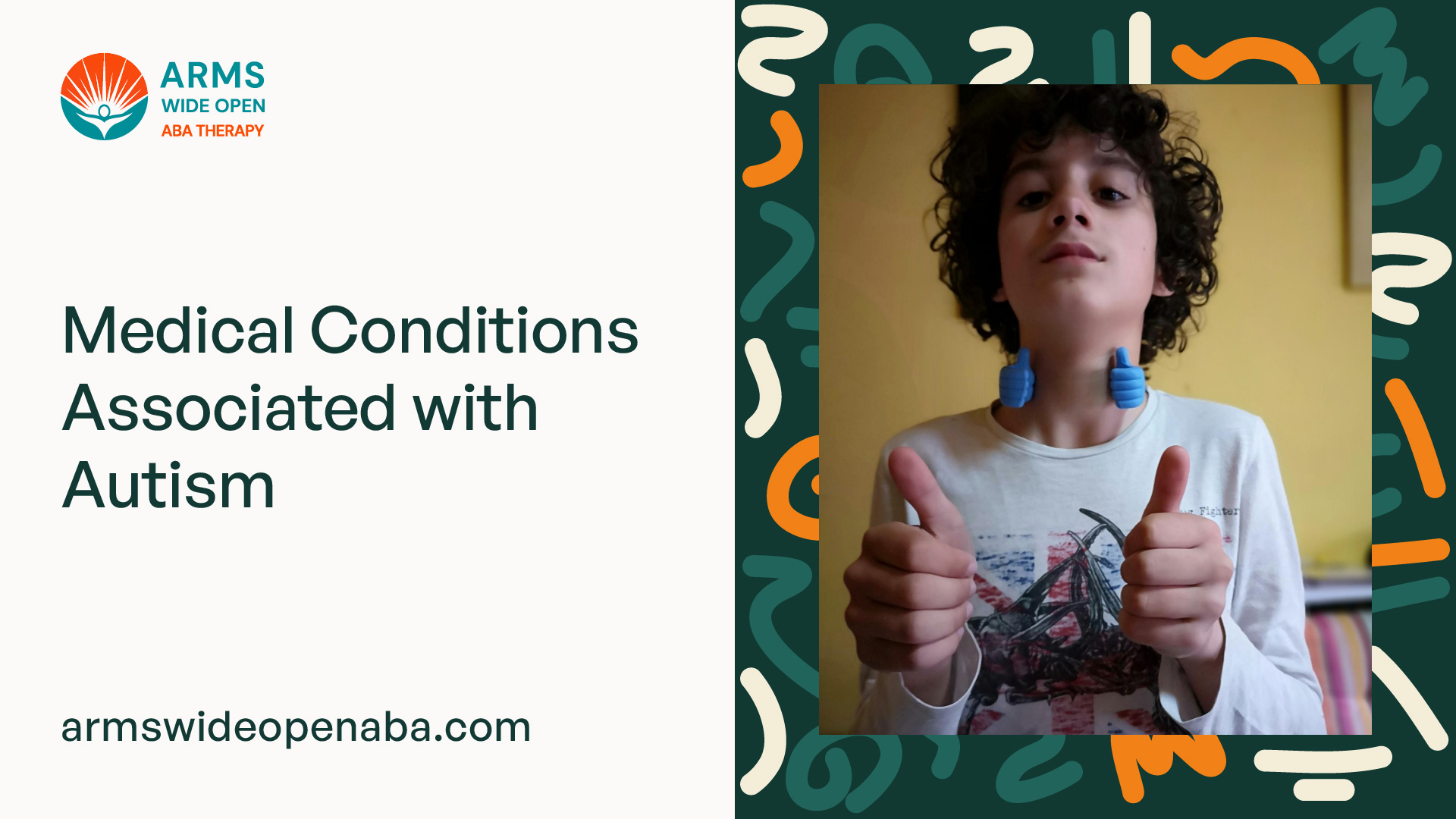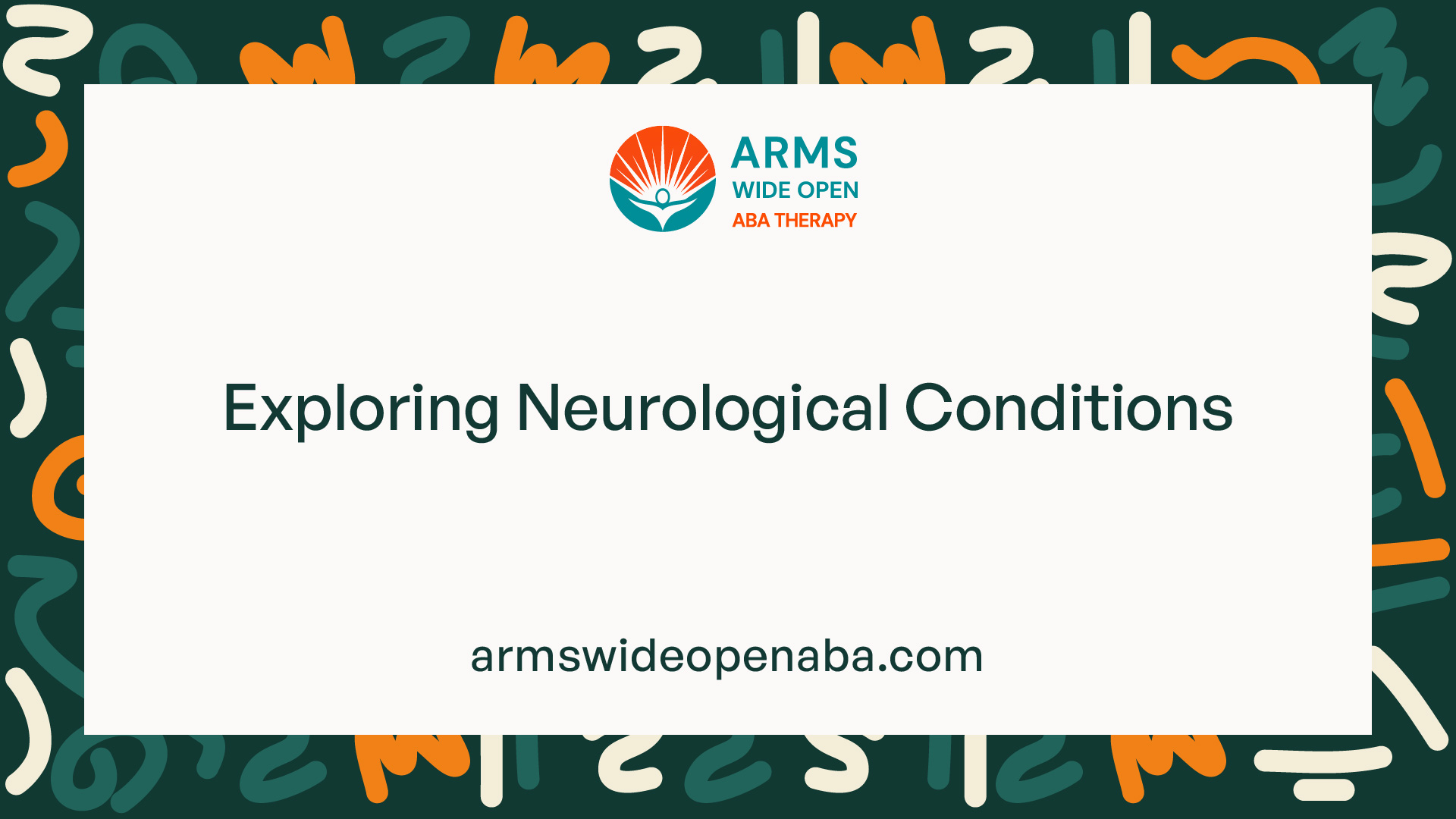Medical Conditions Associated with Autism
Uncover medical conditions associated with autism – from gastrointestinal issues to neurological conditions. Gain insights for comprehensive care.


Understanding Autism and Associated Medical Conditions
Autism Spectrum Disorder (ASD) is a complex neurodevelopmental condition characterized by challenges in social interaction, communication, and repetitive behaviors. While autism itself presents significant challenges, it is important to recognize that individuals with autism may also experience a range of associated medical conditions. Understanding these associated medical conditions is crucial for comprehensive care and improved quality of life.
Overview of Autism Spectrum Disorder
Autism Spectrum Disorder is a lifelong condition that affects individuals across a wide spectrum. It is typically diagnosed in early childhood, with symptoms often becoming evident during the first few years of life. The specific symptoms and severity can vary greatly from person to person.
The core features of autism include difficulties in social interactions, such as trouble with nonverbal communication, challenges in developing and maintaining relationships, and a preference for repetitive behaviors or restricted interests. Sensory sensitivities and difficulties with change or transitions are also common among individuals with autism.
Importance of Identifying Associated Medical Conditions
Identifying and understanding the medical conditions associated with autism is essential for several reasons. Firstly, it allows for early detection and intervention, enabling healthcare professionals to provide appropriate support and treatment. Additionally, addressing associated medical conditions can help improve the overall well-being and quality of life for individuals with autism.
By recognizing and addressing associated medical conditions, healthcare providers can better manage the unique needs of individuals with autism. This comprehensive approach ensures that individuals receive the appropriate care and support, promoting optimal development and functioning.
Understanding the link between autism and associated medical conditions is crucial for healthcare professionals, caregivers, and individuals with autism themselves. It allows for greater awareness and proactive management of these conditions, leading to improved outcomes and a better quality of life.
In the following sections, we will explore the common medical conditions linked to autism, including gastrointestinal issues, epilepsy and seizure disorders, sleep disorders, neurological conditions, physical health concerns, and the diagnostic challenges and treatment approaches associated with these conditions.
Common Medical Conditions Linked to Autism
Individuals with autism spectrum disorder (ASD) often experience medical conditions that are associated with their diagnosis. Understanding these medical conditions is crucial for providing comprehensive care and support to individuals with autism. In this section, we will explore three common medical conditions that are frequently linked to autism: gastrointestinal issues, epilepsy and seizure disorders, and sleep disorders.
Gastrointestinal Issues
Gastrointestinal (GI) issues are commonly reported in individuals with autism. These issues can range from mild to severe and may include symptoms such as constipation, diarrhea, abdominal pain, and gastrointestinal inflammation.
Research suggests that there may be a connection between GI issues and autism, although the exact relationship is still being investigated. It is important for healthcare providers to evaluate and address GI concerns in individuals with autism to ensure their overall well-being.

Epilepsy and Seizure Disorders
Epilepsy and seizure disorders are frequently observed in individuals with autism. Seizures can vary in type and severity, ranging from absence seizures to more severe tonic-clonic seizures.
The prevalence of epilepsy in individuals with autism is higher compared to the general population. It is estimated that around 20-30% of individuals with autism experience epilepsy or seizure disorders.

Sleep Disorders
Sleep disorders are another common medical condition associated with autism. Many individuals with autism experience difficulties with sleep, including problems with falling asleep, staying asleep, and having irregular sleep patterns.
Sleep disturbances can have a significant impact on the overall well-being and quality of life of individuals with autism, as well as their families. Addressing sleep disorders is crucial in promoting better sleep hygiene and improving the overall functioning of individuals with autism.

Understanding and addressing these common medical conditions associated with autism is essential for providing comprehensive care and support to individuals with ASD. By recognizing and managing GI issues, epilepsy and seizure disorders, and sleep disorders, healthcare professionals can help improve the overall quality of life for individuals with autism and enhance their well-being.
References:
- Buie T. et al. (2010). Evaluation, diagnosis, and treatment of gastrointestinal disorders in individuals with ASDs: a consensus report. Pediatrics, 125(Supplement 1), S1-S18.
- Tuchman R. & Rapin I. (2002). Epilepsy in autism. The Lancet Neurology, 1(6), 352-358.
- Krakowiak P. et al. (2008). Sleep problems in children with autism spectrum disorders, developmental delays, and typical development: a population-based study. Journal of Sleep Research, 17(2), 197-206.

Exploring Neurological Conditions
Individuals with autism spectrum disorder (ASD) may also experience various neurological conditions that can impact their overall well-being. These conditions can have a significant influence on the lives of individuals with autism and their families. In this section, we will explore three common neurological conditions that are often associated with autism: Attention Deficit Hyperactivity Disorder (ADHD), anxiety and depression, and sensory processing disorders.
Attention Deficit Hyperactivity Disorder (ADHD)
Attention Deficit Hyperactivity Disorder (ADHD) is a neurodevelopmental disorder characterized by symptoms such as inattention, hyperactivity, and impulsivity. Research suggests that ADHD frequently co-occurs with autism, with studies reporting that approximately 30% to 80% of individuals with ASD also meet the criteria for ADHD.
The presence of ADHD symptoms alongside autism can further impact an individual's attention span, focus, and impulse control. It is essential to identify and address ADHD in individuals with autism to provide appropriate support and intervention.
Anxiety and Depression
Anxiety and depression are common mental health conditions that can occur in individuals with autism. Studies have found that rates of anxiety and depression are higher among individuals with ASD compared to the general population. Anxiety disorders, such as social anxiety, generalized anxiety disorder, and obsessive-compulsive disorder, are particularly prevalent in individuals with autism.
Depression, characterized by persistent feelings of sadness, loss of interest, and changes in appetite or sleep patterns, can also co-occur with autism. It is crucial to recognize and address anxiety and depression in individuals with autism to ensure their mental well-being and overall quality of life.
Sensory Processing Disorders
Sensory processing disorders refer to difficulties in processing and responding to sensory information from the environment. Individuals with autism often experience sensory sensitivities or sensory seeking behaviors, which can significantly impact their daily functioning.
Sensory processing disorders can manifest in different ways, such as hypersensitivity to certain textures, sounds, or lights, or seeking intense sensory input to regulate their sensory systems. These challenges can affect an individual's ability to navigate their surroundings and engage in daily activities comfortably.
Understanding and addressing sensory processing disorders in individuals with autism is crucial for creating environments that are sensory-friendly and promoting their sensory regulation and well-being.
By exploring and understanding these neurological conditions associated with autism, we can gain insights into the diverse challenges faced by individuals with autism. It highlights the importance of a comprehensive approach that considers the co-occurrence of these conditions and provides appropriate support and intervention to enhance the overall quality of life for individuals with autism.
Physical Health Concerns
Individuals with autism often face physical health concerns that are associated with their condition. Understanding and addressing these concerns is crucial for providing comprehensive care. Some of the common physical health concerns linked to autism include allergies and immune system disorders, obesity and eating disorders, and genetic conditions.
Allergies and Immune System Disorders
Research has shown that individuals with autism may have a higher prevalence of allergies and immune system disorders compared to the general population. Allergies can range from mild to severe and may include reactions to food, environmental factors, or medications. Additionally, autoimmune disorders, such as autoimmune thyroiditis and celiac disease, have been found to be more common in individuals with autism.

It is important for healthcare providers to be aware of these potential allergies and immune system disorders in individuals with autism and consider appropriate testing and management strategies.
Obesity and Eating Disorders
Obesity and eating disorders are additional physical health concerns that can be associated with autism. Some individuals with autism may have difficulties with sensory processing, which can affect their relationship with food and eating. This can lead to selective eating, food aversions, or restrictive eating patterns, which in turn may contribute to nutritional imbalances and obesity.

Addressing these concerns requires a multidisciplinary approach involving healthcare providers, nutritionists, and behavioral specialists. Strategies may include sensory-based interventions, nutritional counseling, and support for healthy eating habits.
Genetic Conditions
Genetic conditions are also commonly associated with autism. Many individuals with autism have genetic mutations or variations that contribute to the development of the condition. Some of these genetic conditions, such as fragile X syndrome and Rett syndrome, are well-known to be associated with autism. However, it is important to note that not all individuals with autism have an identifiable genetic condition.

Genetic testing and evaluation may be recommended for individuals with autism to identify any underlying genetic conditions. This can help inform treatment approaches and provide valuable information for families.
Understanding and addressing the physical health concerns associated with autism is essential for comprehensive care and improving the overall well-being of individuals on the autism spectrum. By recognizing and managing allergies and immune system disorders, addressing obesity and eating disorders, and considering genetic conditions, healthcare providers can provide more holistic support to individuals with autism.

Diagnostic Challenges and Treatment Approaches
Individuals with autism often face unique diagnostic challenges due to the wide range of associated medical conditions. Identifying and diagnosing these conditions is crucial for providing appropriate treatment and support. In this section, we will explore the diagnostic challenges and treatment approaches related to medical conditions in individuals with autism.
Identifying and Diagnosing Medical Conditions in Individuals with Autism
Diagnosing medical conditions in individuals with autism can be challenging due to several factors. Communication difficulties, sensory sensitivities, and atypical behavior patterns can make it difficult for individuals with autism to express their symptoms accurately. Additionally, some medical conditions may present differently in individuals with autism compared to neurotypical individuals. Healthcare professionals need to consider these unique factors when assessing and diagnosing medical conditions in individuals with autism.
To aid in the diagnostic process, healthcare professionals often rely on a combination of medical history reviews, physical examinations, and specialized assessments. These assessments may include behavioral observations, standardized questionnaires, and medical tests. It's important for healthcare providers to have a comprehensive understanding of autism and its associated medical conditions to ensure accurate diagnosis and appropriate treatment.
Multidisciplinary Treatment Approaches
Treating medical conditions in individuals with autism often requires a multidisciplinary approach. A team of healthcare professionals, including physicians, psychologists, therapists, and specialists, collaborate to develop individualized treatment plans. This approach considers the unique needs of each individual and addresses the medical condition in the context of autism.
The treatment plan may involve a combination of medical interventions, behavioral therapies, and supportive interventions. Medical interventions may include medication, dietary modifications, or surgical procedures depending on the specific medical condition. Behavioral therapies, such as Applied Behavior Analysis (ABA), can help individuals with autism manage symptoms and develop adaptive skills. Supportive interventions may include occupational therapy, speech therapy, or counseling to address associated challenges.
Addressing Medical Conditions in Autism Care Plans
When developing care plans for individuals with autism, it is essential to address the associated medical conditions. Care plans should include strategies for managing and treating these conditions alongside the core symptoms of autism. This comprehensive approach ensures that individuals with autism receive appropriate support and treatment for all aspects of their health.
The care plan may involve regular follow-up appointments with healthcare providers, monitoring of symptoms, and adjustments to treatment as needed. It's important for caregivers and healthcare providers to maintain open communication and collaborate closely to ensure the best possible outcomes for individuals with autism.
By recognizing the diagnostic challenges and adopting a multidisciplinary approach to treatment, healthcare professionals can effectively address the medical conditions associated with autism. This holistic approach provides individuals with autism the opportunity to receive comprehensive care and support, promoting their overall well-being and quality of life.
Sources
https://www.autismspeaks.org/medical-conditions-associated-autism
https://www.nhs.uk/conditions/autism/other-conditions/
Similar articles
We’re here to help you

Our team is here to assist you in this process. Contact us for any assistance.
it’s easy to apply
We Accept Most Insurances
Our in-network insurance partnerships make ABA therapy more accessible to families throughout our service areas.







Our Insurance Process
We'll request your insurance details to help us verify your plan's coverage for ABA therapy. Once we've received this information, we'll walk you through your benefits, including copayments, deductibles and out-of-pocket maximums, so you know what to expect in advance.
Our team will then handle the preauthorization and all the necessary paperwork.
.svg)





















.jpeg)


































.jpeg)




.jpeg)







.jpeg)











.jpeg)
















